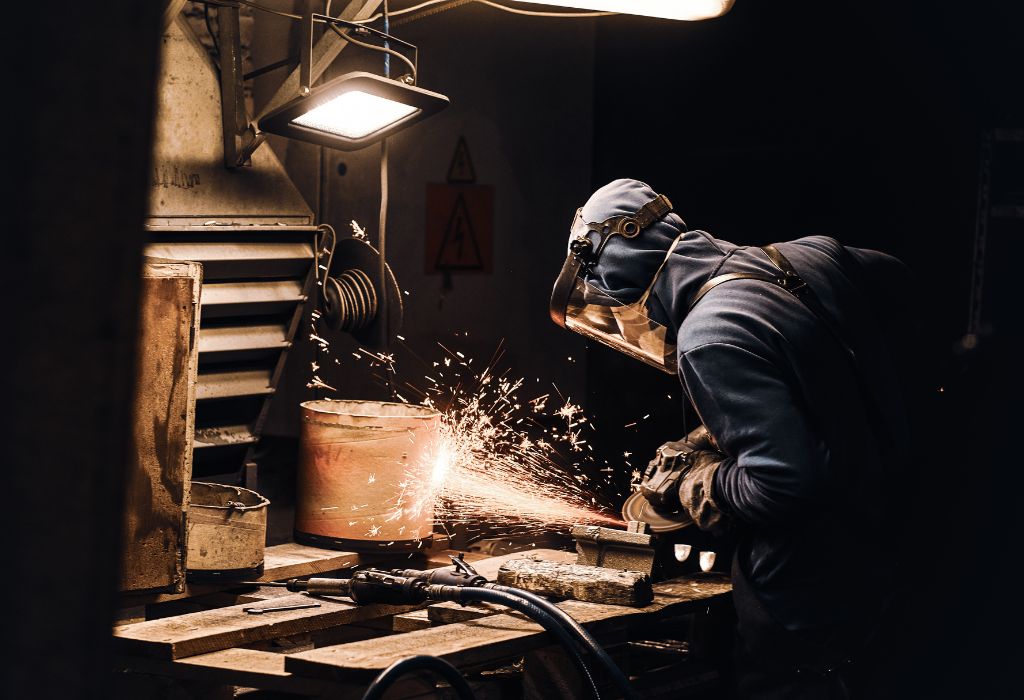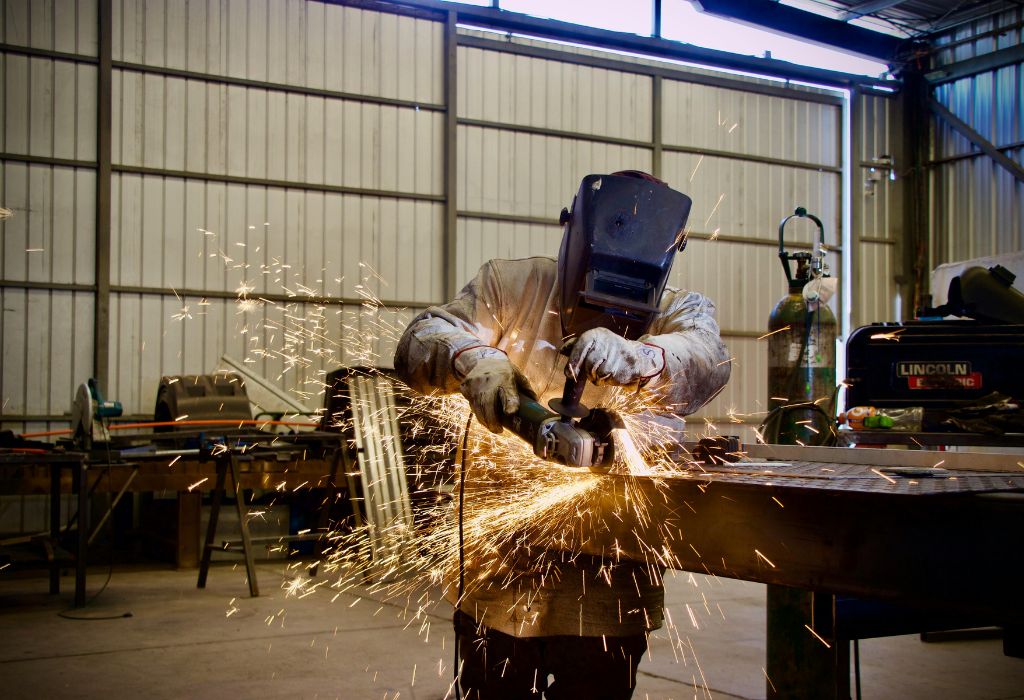Imagine a job where a single mistake can cause sparks to fly in the wrong direction, leading to injuries or major damage.
Welding is one of those professions that demands absolute focus and steady hands. For those who hold a medical card, the question often arises: can you still work as a welder?
Across the United States, the use of medical cards has increased as more states legalize them for various conditions
. According to Pew Research, nearly 88% of Americans support legalization in some form, showing how widespread acceptance has become.
Yet, workplace rules often tell a different story, especially in safety-sensitive jobs like welding.
The welding industry is highly regulated, and companies must comply with strict safety standards.
Even when state laws allow medical cards, federal law and employer rules often create barriers.
This article will explain whether you can be a welder with a medical card, what the rules say, and what options exist for workers navigating this issue.
Why Welding Is Considered a Safety-Sensitive Job

Welding involves cutting, fusing, and repairing metals under conditions that require sharp concentration. Any impairment, even minor, could cause severe accidents. That’s why welding is classified as a safety-sensitive occupation.
Employers and regulators treat welders similarly to truck drivers or heavy machinery operators. Workplace accidents are not only dangerous but also expensive. For this reason, employers enforce strict no-drug policies to maintain safety and compliance with OSHA standards.
Why are welders considered safety-sensitive workers?
Because they operate dangerous tools and work in hazardous environments where mistakes can be deadly.
Do medical cards exempt welders from safety rules?
No. Federal and workplace safety regulations still apply to welders regardless of medical status.
Can welders lose jobs for testing positive with a medical card?
Yes. Employers can enforce zero-tolerance policies that lead to termination.
Who decides safety-sensitive classifications?
Agencies like OSHA and the Department of Transportation establish these guidelines.
Do all welding industries test equally?
Not always. Industries like oil and gas or shipyards are stricter than small fabrication shops.
Federal Law vs State Medical Card Rules
Federal law still classifies marijuana as a Schedule I controlled substance. This means that even if a welder has a valid state-issued medical card, federal rules do not recognize it. Employers following federal contracts or safety guidelines must apply these stricter laws.
State laws vary widely. Some states allow medical card holders workplace protections, but most defer to employers’ right to enforce drug-free policies. This creates confusion for welders working across state lines or applying for federal contracts.
Does federal law allow medical cards for workers?
No. Federal law makes no exceptions for medical card use.
Do state laws protect welders with medical cards?
In a few states, yes. However, protections are limited and often overridden by employer rules.
Can federal contractors employ welders with medical cards?
Rarely. Federal contracts usually require full compliance with drug-free workplace acts.
Are some states stricter than others?
Yes. States like Texas enforce stricter policies compared to more lenient states like California.
What’s the biggest conflict welders face?
Balancing state-level approval of medical cards with federal-level restrictions.
Employer Policies for Welders with Medical Cards
Even if laws provide some protections, most welding employers have their own policies. These often include pre-employment, random, and post-accident drug testing. Welders in high-risk industries should expect stricter testing than those in smaller workshops.
Employers generally enforce a zero-tolerance policy, regardless of whether use is medical or recreational. A positive test can lead to disqualification from hiring or termination. Employers prioritize safety and liability reduction above individual medical needs.
Do employers check for medical cards during hiring?
Not always, but drug testing will reveal use regardless of medical status.
Can an employer refuse to hire welders with a medical card?
Yes. Private employers have broad authority to set drug policies.
Do union contracts protect welders with medical cards?
In rare cases, yes, but most unions still follow safety-first guidelines.
Can welders appeal a failed test result?
Appeals are possible but rarely successful if drug use is confirmed.
Are smaller companies more flexible?
Sometimes. Small shops may be less strict, but risks remain.
Drug Testing in the Welding Industry
Drug testing is a standard practice in welding. Employers use urine, hair, or saliva tests to detect recent use. For welders, testing is especially common in safety-sensitive industries like construction, aerospace, or shipbuilding.
Testing ensures compliance with safety regulations and helps reduce liability in case of accidents. Even if a welder has a medical card, most companies will not make exceptions when a test comes back positive.
What kind of drug tests do welders take?
Urine tests are most common, but some employers use hair or saliva tests.
Do medical cards change testing rules?
No. A positive test result still counts against the welder.
How often are welders tested?
Pre-employment, random, and post-incident testing are all common.
Can welders refuse a drug test?
Yes, but refusal usually results in termination or disqualification.
Do federal projects have stricter testing?
Yes. Welders on government contracts face the strictest drug testing policies.
Risks of Welding While Using a Medical Card
Operating under the influence creates serious safety concerns. Even if welders use their medical card off-duty, traces of substances can remain detectable, leading to failed tests. This complicates employment and increases risk.
Employers fear accidents, lawsuits, and higher insurance premiums if welders work impaired. Because of these risks, most companies enforce zero tolerance, regardless of how responsibly a medical card is used.
Why is welding under the influence dangerous?
It slows reaction time and increases accident risks.
Do medical cards excuse impairment at work?
No. Employers must enforce safe workplace standards.
Can off-duty use still affect welders?
Yes. Substances remain in the system long after use.
What risks do employers face?
Legal liability, workplace accidents, and higher costs.
Can safety training replace zero-tolerance rules?
No. Employers cannot risk allowing impaired work in welding.
Alternatives and Workplace Accommodations

Some welders with medical conditions look for alternatives. In certain cases, employers may allow non-impairing treatments or accommodations. However, welding is rarely a field where impairment allowances are made.
Workers may need to discuss alternative prescriptions with healthcare providers to avoid workplace conflicts. In states with limited protections, seeking employment outside of safety-sensitive roles may be the only option.
Can employers offer accommodations for welders?
Yes, but usually only if treatments do not impair safety.
What alternatives exist for welders with medical needs?
Non-impairing medications prescribed by doctors.
Do ADA protections apply to welders with medical cards?
Not directly. ADA protections cover disabilities, not substance use.
Can welders request reassignment to lower-risk tasks?
Sometimes, but not all employers provide this option.
What’s the safest path for welders with medical cards?
Consult doctors for alternative treatments that won’t conflict with job policies.
Conclusion
So, can you be a welder with a medical card? The answer is complicated. While state laws may allow medical cards, federal law and most employer policies do not make exceptions. Welding is considered a safety-sensitive job where zero tolerance is the norm.
For welders, the safest path is to understand workplace rules before seeking employment. Those with medical conditions should discuss alternatives with healthcare providers and employers. The balance between safety and medical rights continues to evolve, but in welding, safety nearly always comes first.

I’m Darrell Julian, the founder, lead writer, and hands-on welding enthusiast behind ArcWeldingPro.com. With more than 15 years of real-world welding experience, I created this platform to share what I’ve learned in the field, in the shop, and in the heat of the arc.


